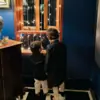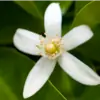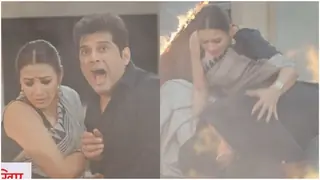
Diwali or Deepavali is known as the Festival of Lights and is considered the Indian New Year. It is one of the most awaited festivals of the year and is celebrated by millions of Indians around the globe. Diwali is seen as the triumph of good over evil or light over darkness and is celebrated with lights, sweets, fireworks, rangoli, and colorful diyas.
Diwali falls on the 15th day of the Hindu month of Kartik and usually varies in the English calendar falling in October or early November each year.
Diwali is celebrated by Hindus, Jains, Sikhs, and Newar Buddhists, and each has its own stories behind the origins of this auspicious date.
In Hinduism, Diwali is seen as the day Ram, Sita, Lakshman, and Hanuman reached Ayodhya after a 14-year exile and after defeating Ravan, who had kidnapped Sita to avenge his sister's humiliation. Many also see it as a celebration of when Krishna killed the demon Narakasura in the Dvapara Yuga. Others see it as the day that Lakshmi was born from Samudra Manthan and the night is specifically for when Lakshmi chose and wed Vishnu.
In Jainism, Diwali is celebrated as the physical death and final nirvana of Mahavira, also known as "Mahavira Nirvana Divas". According to the Jain tradition, the practice of lighting lamps first began on Mahavira's nirvana when 18 kings issued a proclamation for lamps to be lit in remembrance of Mahavira after his final teachings.
Sikhs celebrate Diwali by another name, Bandi Chhor Divas, as they remember the release of Guru Hargobind from the Gwalior Fort where he was imprisoned by Jahangir. The specific day of Diwali is the day he arrived at the Golden Temple in Amritsar. In Sikh history, Diwali highlights 3 events: the founding of Amritsar, the release of Guru Hargobind, and the day of Bhai Mani Singh's martyrdom when he failed to pay a fine for celebrating Diwali and refusing to convert to Islam.
Newar Buddhists are the exception in Buddhism who celebrate Diwali by offering prayers to Lakshmi and Vishnu and is considered a reflection of the freedom within Mahayana Buddhist tradition to worship any deity for their worldly betterment.
Diwali is typically celebrated over 5 days. Dhanteras marks the first day of the festival with people cleaning their homes and making rangolis. The second day is Naraka Chaturdashi as in Choti Diwali or the day Krishna killed the demon Narakasura. The third day is Lakshmi Puja and is typically the darkest night of the traditional month and is thus celebrated by lighting up houses, streets, and even cars. In some parts of India, the fourth day is Govardhan Puja and Balipatripada (Padwa). The final day is celebrated as Bhai Dooj, a day dedicated to the bond between brothers and sisters. Others celebrate the final day as Vishwakarma Puja by performing maintenance and then prayers in their workspaces.
However, you may celebrate Diwali, it is undoubtedly one of the biggest, if not the biggest celebration in Indian culture with every region marking it in their own way. It is marked with prayers to many gods, including Lord Ganesha, Lakshmi Mata (or Kali Mata), Ram and Sita, and Lord Vishnu. It is a time of eating sweets, lighting up your life and house, and letting bygones be bygones. It is a time of colors and peace as people spend time loving themselves, their families, and their neighbours. So let this year's Diwali mark the beginning of a new life post covid. Be safe everyone!










































10